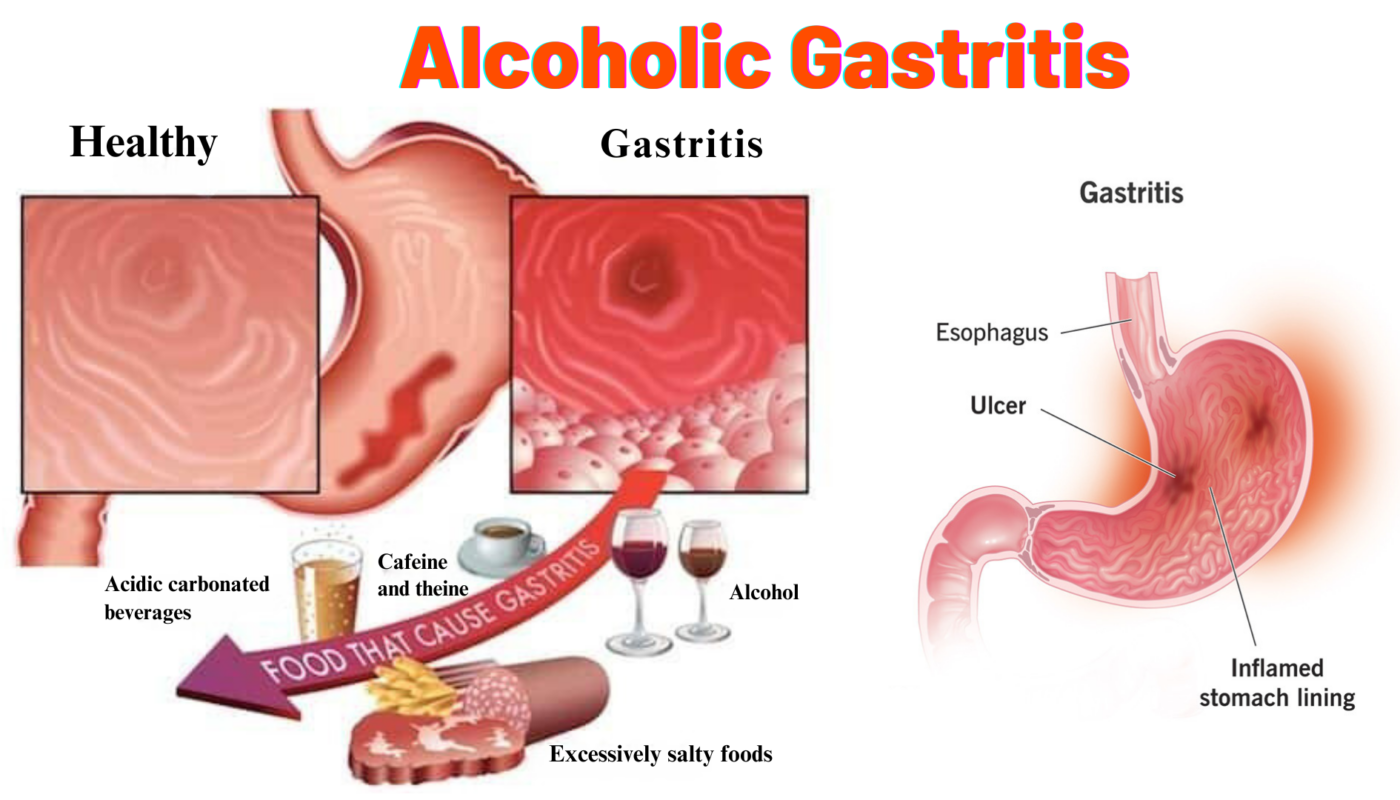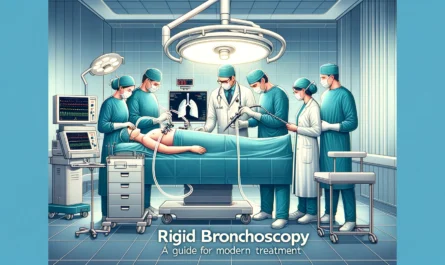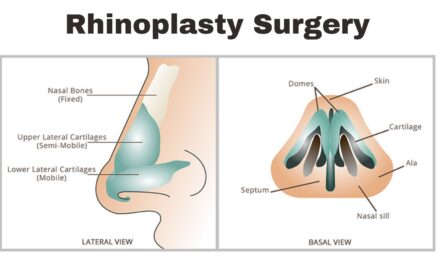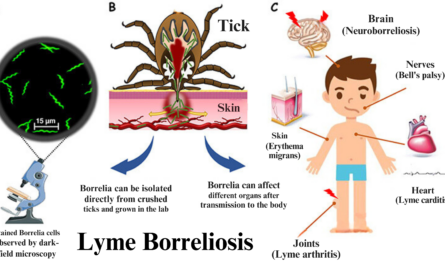Alcoholic Gastritis
What is Alcoholic Gastritis?
Alcoholic Gastritis is characterized by irritation, inflammation, or eroding of the stomach lining due to drinking excessively. Alcohol is an irritant on the stomach’s lining that can cause a spectrum of symptoms relating to digestion that range from minor discomfort to extreme discomfort. The condition may manifest in a flash in the form of sudden, severe symptoms or that is, with persistent and long-term problems. An understanding of the condition is vital to prevent and manage the complications that can result as a result of long-term drinking.
Importance of Understanding Alcoholic Gastritis
Understanding the importance of Alcoholic Gastritis is essential for a variety of reasons. First, early detection and treatment could prevent serious complications like stomach bleeding or ulcers. Furthermore, understanding the effect of alcohol on your digestive system may encourage healthy drinking practices and boost general well-being. In addition, awareness among the public can result in better support mechanisms for people suffering from drinking disorders, which could reduce the number of people suffering from alcohol-related health problems.
Prevalence and Risk Factors
Gastric ulcers caused by alcohol are a typical illness among people who consume Alcoholic Gastritis in excess. It is more likely to develop if you boost the degree and frequency of alcohol consumption. Males are more likely to contract the condition due to their higher prevalence of drinking heavily. Some other risk factors are pre-existing digestive conditions, smoking, and diets that are filled with irritants, such as spicy food items. It’s important to think about these elements when determining the risk of developing alcohol gastritis and take precautions accordingly.
Causes of Alcoholic Gastritis
Chronic Alcohol Consumption
The main cause of the condition is long-term drinking of alcohol. In particular, when it is taken in large quantities, it can irritate the stomach’s lining. The irritation may cause inflammation, which can cause signs of gastritis. In time, constant exposure to alcohol may affect the mucous protective layer in the stomach, which makes it more vulnerable to damage due to gastric acids.
Impact on Alcoholic Gastritis Mucosa
The gastric mucosa, or the stomach lining, is essential in shielding the stomach from acidic surroundings. Alcohol can alter the equilibrium of this mucosal membrane, which causes it to get inflamed and damaged. This can result in the production of gastric acid and further irritation of the stomach’s lining, leading to the development of ulcers. The mucosal damage can also hinder the stomach’s ability to heal itself. which can prolong the illness and make it harder to treat.
Other Contributing Factors
Recognizing these factors as contributing to the problem is vital for the complete management and treatment of alcoholic gastritis. Although chronic consumption of alcohol is the main reason, other elements may contribute to the development and severity of the condition. This includes:
- Alcoholic Gastritis diet: A diet high in acidic, spicy, or fatty food can increase stomach liner discomfort.
- Nicotine: Tobacco use can improve the production of stomach acid and weaken the mucosal lining which can improve the negative effect of alcohol.
- High-stress levels may cause increased stomach acidity and decreased blood circulation, affecting the stomach’s healing ability.
- Medical Conditions: Certain medications, for example, nonsteroidal anti-inflammatory drugs (NSAIDs), may worsen stomach irritation in conjunction with alcohol.
Symptoms of Alcoholic Gastritis
Common Symptoms of Alcoholic Gastritis
Acute Alcoholic Gastritis can manifest with various symptoms, which vary in their severity. The most common symptoms are:
- Abdominal Pain persistent or continuous abdominal pain that is persistent or intermittent is an indication of gastritis. The pain may be intense or dull and can be caused by drinking or eating.
- Vomiting and nausea: Frequent nausea and periodic vomiting are normal, particularly following a drink. Sometimes, vomiting could have blood in it or appear like coffee grounds. This could be a sign of bleeding.
- Indigestion and Bloating: Some people feel full or bloated. Heartburn and indigestion can accompany this. This is usually most noticeable following meals.
- Hunger Loss: A reduced desire to eat food and rapid satiety can cause weight loss and nutritional deficiency over time. Please also visit my other post, CMML Leukemia.
Severe Symptoms and Complications
If the condition is severe condition can result in serious problems which include:
- Gastrointestinal bleeding: Chronic irritation of the stomach’s lining can result in bleeding, which can appear as blood in vomit or dark, black stools (melena).
- Ulcer Development: Persistent inflammation can cause the formation of peptic ulcers. These are open wounds within the stomach lining. They may cause extreme bleeding and pain.
- Anaemia: Blood loss from stomach bleeding could be accompanied by anaemia, which is evident in weakness, fatigue, and pallor.
- Perforation: Rarely severe ulcers could cause the stomach’s wall perforation, leading to an emergency that needs urgent medical attention.
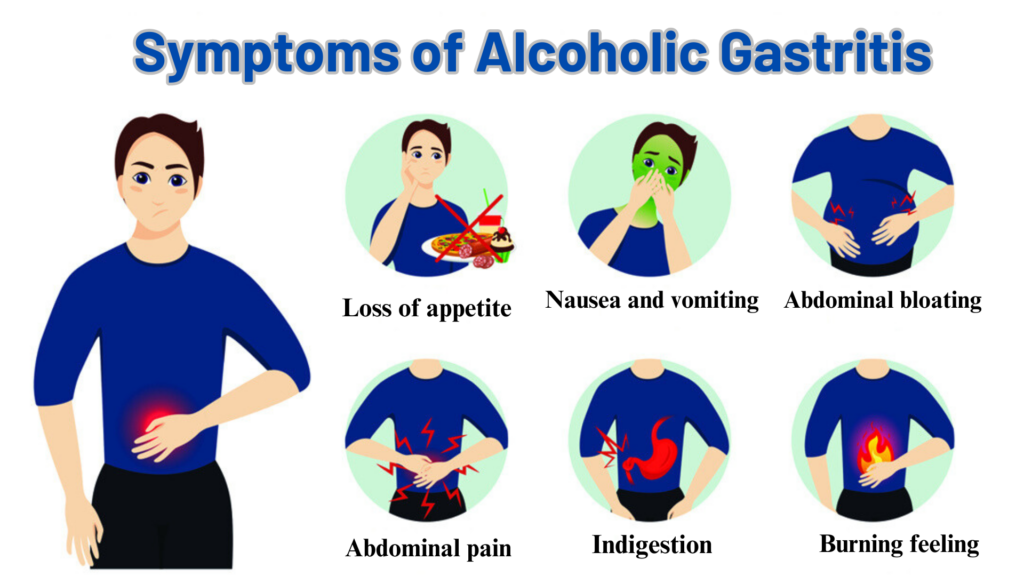
Differences Between Acute and Chronic Gastritis
Knowing the distinctions between chronic and acute gastritis is vital to determining the most appropriate method of treatment and managing the problem efficiently. Gastritis caused by alcohol can be classified into two major varieties based on the frequency and severity of symptoms: chronic and acute.
- Acute Gastritis: This condition is characterized by the sudden appearance of extreme symptoms. Usually, it occurs after drinking enough alcohol. The symptoms can include severe abdominal pain, nausea, and nausea. Acute Gastritis can be treated quickly when treated appropriately and with the abstinence of alcohol.
- Chronic Gastritis The chronic gastritis condition develops as time passes with long-term consumption of alcohol. The symptoms are usually mild, but they can be persistent and include constipation, abdominal pain, and stomach indigestion. Gastritis chronically increases the chance of acquiring complications like bleeding, ulcers, and ulcers.
Diagnosis of Alcoholic Gastritis
Clinical Evaluation
The identification of the condition is usually based on an extensive clinical examination. In this examination, the medical competent will:
- Request a thorough medical Background: The provider will inquire about patterns of alcohol consumption and dietary practices, smoking, and signs of digestive ailments or signs.
- Do a physical exam: A physical exam could reveal tenderness on the upper part of the abdomen along with other indicators of stomach anxiety. The doctor can also look for indications of anaemia or malnutrition.
Diagnostic Tests
A variety of diagnostic tests may benefit to confirm the diagnosis of gastritis alcohol and determine the severity of the disease:
- Endoscopy: A gynecological endoscopy of the upper part is the most reliable test to diagnose gastritis. During this process, the flexible tube containing cameras (endoscope) is placed through the mouth to view the stomach lining. Doctors can detect the presence of ulcers, inflammation, erosion, or bleeding and can conduct biopsies to analyze further.
- Blood tests: Blood tests can reveal anaemia, infection, and other signs that could be signs of gastritis or its complications. Testing for liver function as well as vitamin deficiencies could also be performed.
- Stool Tests: Stool tests may reveal whether there is blood suggesting gastrointestinal bleeding. It could also reveal illnesses that can cause gastritis.
- imaging studies: Sometimes imaging studies, such as abdominal X-rays or CT scans, are performed to examine the stomach and adjacent organs for problems or structural issues.
Differential Diagnosis
An accurate diagnosis is vital to ensure a successful treatment plan since the treatment for alcohol gastritis can differ in comparison to other conditions of gastrointestinal. Different conditions could present symptoms similar to alcohol gastritis. That makes an accurate diagnosis crucial:
- Peptic Ulcer Disease: Ulcers in the stomach or duodenum could cause symptoms similar to gastritis and can often coexist with it.
- Gastroesophageal Reflux Disorder (GERD): GERD causes heartburn and ingestion that mimics gastritis.
- Gallbladder Disease: Conditions such as cholecystitis, or gallstones can trigger abdominal pain, which can be misinterpreted as gastritis.
- Pancreatitis Pancreas inflammation may cause stomach pain, vomiting, and nausea, as with acute gastritis.
- Functional Dyspepsia The condition is characterized by persistent indigestion that has no apparent reason and maybe a recurrence with gastritis symptoms.
Treatment Options for Alcoholic Gastritis
Medical Treatments
Treatment for Alcoholic Gastritis caused by alcohol usually involves medication to lower stomach acid, and to promote healing of the mucosa that lines the stomach. Proton Pump Inhibitors (PPIs) and antagonists of the H2 receptor are frequently recommended. These include:
- Proton Pump Inhibitors (PPIs): Reduce stomach acidity and help heal the stomach liner.
- Antagonists of the H2 receptor: Reduce acid production by blocking the histamine receptors within the stomach.
- Antacids neutralize stomach acid and impart rapid relief from discomfort and pain.
- Antibiotic indications are given when an illness like Helicobacter pylori exists.
Lifestyle and Dietary Changes
Changes in lifestyle are essential to controlling alcohol-related gastritis. Eliminating or limiting alcohol consumption is the single most crucial measure. Implementing a healthy, balanced diet, which avoids irritating substances such as hot foods, caffeine, and NSAIDs, may reduce the symptoms. The most important changes are:
- Reduced Alcohol Consumption Abstaining from or restricting the consumption of alcohol is vital to enable the stomach’s lining to be healed.
- Healthy Diet Consuming a healthy, balanced diet that is high in vegetables, fruits, Whole grains, and lean protein can decrease inflammation and aid healing.
- Refraining from Irritants: Do not consume foods or drinks that can cause stomach irritation, including spicy food such as coffee or alcohol that is acidic.
Alternative Therapies
Alternative therapies like probiotics, herbal remedies, and acupuncture could give extra comfort to certain people. But, it’s important to talk with your healthcare professional before starting any treatment that is not prescribed by your doctor:
- Herbal Remedies: Certain plants, such as ginger, chamomile, and liquorice, have anti-inflammatory properties that can ease stomach pain.
- Probiotics: Probiotics are supplements that contain beneficial bacteria. They could restore the microbiota’s equilibrium in your gut and boost digestion health.
- Acupuncture: A few studies have suggested that acupuncture could alleviate gastritis symptoms and improve general digestive health.
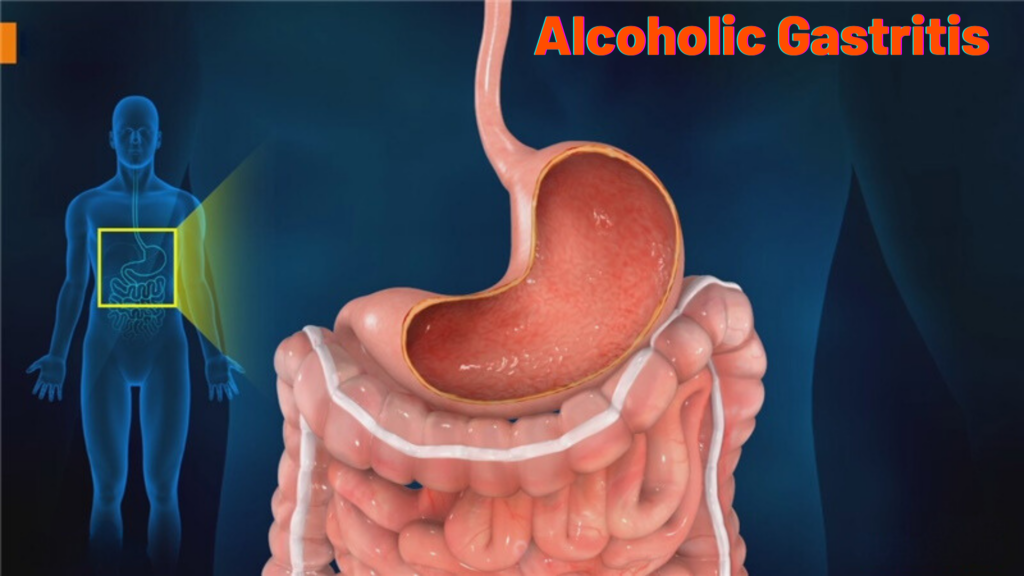
Preventing Alcoholic Gastritis
Reducing Alcohol Consumption
The most efficient approach to prevent gastritis caused by alcohol is to reduce drinking alcohol. The following guidelines on moderate consumption and getting benefits in the case of alcohol dependence could greatly reduce the chance of developing it.
- Limits Setting: Establishing a limit to the amount of alcohol consumed per week, and then following it for a while can benefit to limit the consumption of alcohol.
- Selecting Alcohol-Free Alternatives Choosing non-alcoholic drinks such as sparkling tea, water, and mocktails may cut down on alcohol consumption while permitting socializing.
- Looking for Support: joining support groups or seeking counselling can offer aid in decreasing the consumption of alcohol and also addressing problems that stem from the use of alcohol.
Protective Dietary Measures
Dietary habits that support digestive well-being can benefit to prevent gastritis. It is a matter of eating smaller and regular meals, keeping hydrated, and including soft meals on your stomach. The right diet and lifestyle choices can be a key factor in the prevention of Alcoholic Gastritis.
- A balanced and healthy diet: A diet rich in vegetables, fruits, whole grains, and healthy proteins will boost overall digestive health.
- Eliminating irritants: Avoiding acidic, spicy, or processed foods may shield the stomach line from inflammation and irritation.
- Hydration: Drinking plenty of water may help eliminate toxic substances and ensure the health of your digestive system.
Regular Medical Check-ups
A regular medical exam will help identify early warning indications of gastritis and various digestive problems. The early intervention will stop the progress of the illness and lower the likelihood of developing complications.
- Routine Screenings: Regular visits to a healthcare facility can benefit people by monitoring gastrointestinal health and identifying signs of gastritis or other issues.
- Discussion of Symptoms: It is important to talk with your healthcare professional immediately about any symptoms that are getting worse or new so that you can ensure prompt diagnosis and timely treatment.
- Monitor Medication: Usage If you’re taking medicines that can cause stomach irritation, like NSAIDs, consult with your healthcare professional to ensure proper medication use and reduce the chance of developing gastritis.
FAQ about Alcoholic Gastritis
Q: What is alcoholic gastritis?
A: Alcoholic gastritis is inflammation of the stomach lining caused by excessive alcohol consumption, leading to symptoms like nausea, vomiting, and stomach pain.
Q: What are the symptoms of alcoholic gastritis?
A: Common symptoms include stomach pain, nausea, vomiting, bloating, loss of appetite, and in severe cases, bleeding in the stomach.
Q: How is alcoholic gastritis diagnosed?
A: Diagnosis typically involves a medical history review, physical examination, and possibly an endoscopy to inspect the stomach lining.
Q: What are the treatment options for alcoholic gastritis?
A: Treatment includes stopping alcohol consumption, using medications to reduce stomach acid, and following a diet that avoids irritants to the stomach lining.
